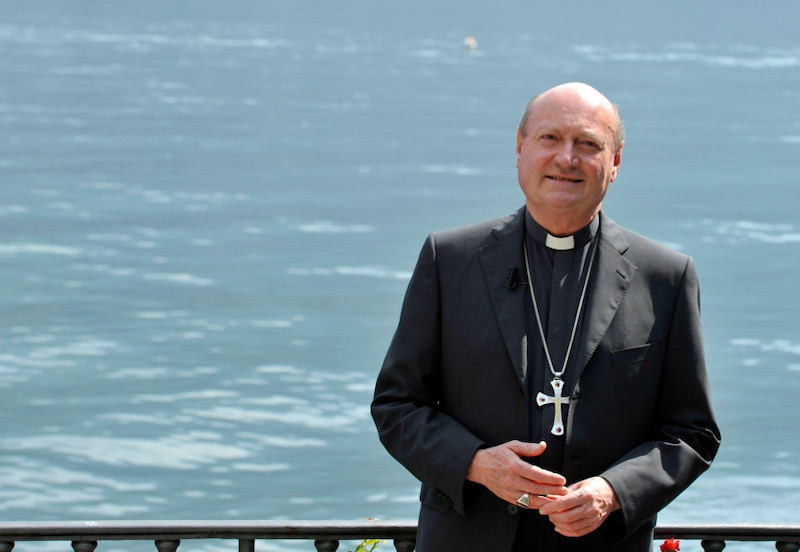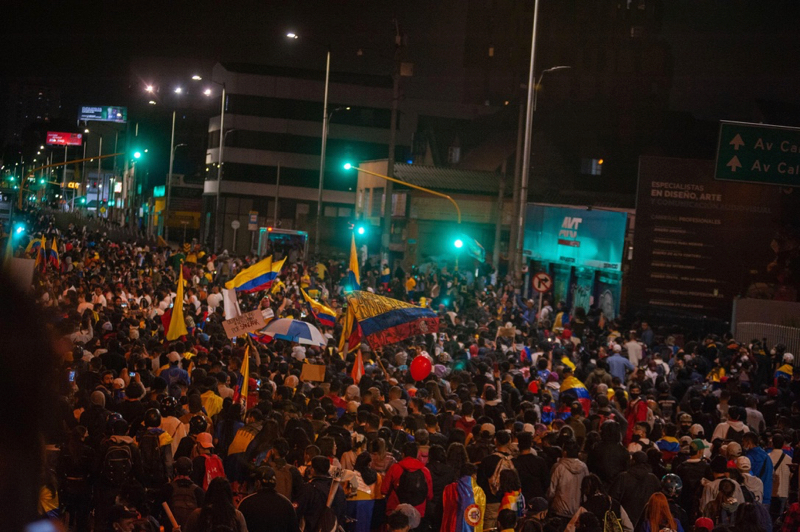The Australian Diocese of Parramatta has abandoned its opposition to a new bill banning discussion on “gender fluidity”. The bill is supported by both the Archdiocese of Sydney and Catholic Schools New South Wales, a governing body which represents all 600 Catholic schools in the state. The Education Legislation Amendment (Parental Rights) Bill 2020 would remove “gender fluidity” as part of education curricula, and would mandate that schools inform parents about all discussions of gender and sexuality. Its sponsor Mark Latham said that his bill aims to “re-establish the primacy of parents in shaping their children’s development and sense of identity”. Archbishop Anthony Fisher of Sydney supported this aim. The Diocese of Parramatta – located in Sydney’s western suburbs – initially opposed the bill, saying that it was concerned that students who identify as lesbian, gay, bisexual, or transgender could be harassed if teaching on gender fluidity was prohibited. This provoked a backlash from priests and parents in the diocese who accused Bishop Vincent Long Van Nguyen of “heresy” and called on him and Parramatta executive director of schools Greg Whitby to resign. On Thursday last week, Bishop Long overruled Mr Whitby in a new submission on the bill, which he said “superseded” Parramatta’s earlier contribution. In his new submission, Bishop Long said the Parramatta diocese “affirms the prohibition of teaching gender ideology (gender fluidity) in an educational setting”, adding that he had “serious concerns, echoing Pope Francis” about this issue.
The Peruvian Episcopal Conference stated last week that the Church is continuing with its commitment to assisting more than one million Venezuelan immigrants, and another 500,000 requesting refugee status in Peru. It reported that Cáritas Arequipa, in coordination with Cáritas Peru, has helped tens of thousands with food packages, warm clothing, personal hygiene kits, accommodation, psychological support, legal assistance, and transport. The Venezuelans are being forced to flee their country because of the ruinous economic and political policies of the regime led by Nicolas Maduro.
The German Protestant Church (EKD) has elected a 25-year-old philosophy student as president of its Synod. Anna-Nicole Heinrich is the youngest president in the Synod’s history. One of the first to congratulate her was the president of the Catholic bishops’ conference, Bishop Georg Bätzing. He was “most impressed” that she was prepared to take on the responsibility of the Synod presidency at her age, he said. He looked forward to working together with her in ecumenical projects and was convinced “that we will discover ways of continuing on the important ecumenical paths that were outlined four years ago at the Reformation Commemoration.” He was certain that the coming Ecumenical Kirchentag (13-16 May) in Frankfurt am Main would confirm this.The EKD Synod is the umbrella organisation for 21.1 million Protestant Christians and approximately 13,500 parishes in Germany.
As the Covid pandemic surges in India, Pope Francis wrote on 6 May to Cardinal Oswald Gracias of Mumbai, president of the Catholic Bishops’ Conference, “to convey my heartfelt solidarity and spiritual closeness to all the Indian people.” He applauded “doctors, nurses, hospital workers, ambulance drivers and those working tirelessly to respond to the immediate needs of their brothers and sisters,” and prayed they might have “God’s gifts of perseverance, strength and peace.” On 5 May more than 412,000 new cases and 3,980 deaths were registered in India in 24 hours. On 7 May Christian denominations held a special "National Day of Fasting and Prayer" for an end to the pandemic.
Turkish President Recep Tayyip Erdogan hosted an Iftar dinner, to break the Ramadan fast, with the leaders of non-Islamic faith communities on 5 May. It was held at the presidential palace in Ankara and attendees included the Ecumenical Patriarch of Constantinople Bartholomew I, along with the Armenian Patriarch of Constantinople, the Syrian Orthodox Metropolitan, the Syrian Catholic Patriarchal Vicar, and leaders of the Jewish Community. Rumours leaked in the Turkish media suggest that topics discussed informally were the issue of properties of minority communities, the draft new Constitution and the recent description by US President Joe Biden of massacres of Armenians in 1915 and 1916 as genocide.
The US diocese of Burlington, Vermont announced several churches will be without a resident priest next year due to a backlog in processing immigration visas for foreign clergy, including three Filipino and one Nigerian priest. “The immigration complication was completely unexpected. The first stage of the green card process which used to take three to four months to complete now takes 17-18 months or longer,” said Burlington Bishop Christopher Coyne.
A controversial Nigerian Catholic priest reported to be missing has re-emerged hours after his supporters stormed a bishop’s residence, demanding to know his whereabouts. Fr Ejike Mbaka, a member of the Clergy of Nigeria’s Enugu Diocese, is said to have disappeared on 2 May following a meeting with the Local Ordinary of Enugu, Bishop Callistus Onaga. In the week before the meeting, Fr Mbaka had reportedly called on Nigeria’s MPs to impeach President Muhammadu Buhari should he fail to resign over the appalling insecurity in many states in Nigeria. Following the alleged disappearance, thousands of his supporters on 5 May attacked Bishop Onaga’s residence, causing destruction of property. According to the News Agency of Nigeria (NAN), Fr Mbaka arrived at the residence of the Bishop of Enugu Diocese later that afternoon. The Communications Director of the Diocese of Enugu has said the reported disappearance was “misinformation”. Last year, Fr Mbaka was reprimanded for engaging in partisan politics after he was seen, in a video recording, expressing explicit support for one candidate in the gubernatorial elections of Nigeria’s Imo State.
The remote island of St Helena marked the 200 years since the death of Napoleon Bonaparte on 5 May 1821 with a Catholic Mass. The South Atlantic Island where the former French emperor died in exile, held several live-streamed events to mark the bicentenary last week, including the Mass, which was held in the dining room of Napoleon’s former house.
A parish priest in a rural diocese in Zimbabwe’s Mberengwa District has resorted to brewing beer and selling it to the region’s gold panners in order to keep his parish afloat amidst Covid-19 restrictions. Fr Joaquim Chukucha of the Don Bosco Mission told Catholic Church News that prior to the lockdown he would sell chickens and goats raised by the parish at his local market. With gatherings banned under Covid-19 measures, Fr Chukucha established a small brewery at Don Bosco brewing a dark sorghum “opaque” beer to locals. “Selling opaque beer is a lucrative business here because makorokoza(the region’s gold panners) like it very much,” he told Catholic Church News Zimbabwe. Parishioners, who have been helping market and sell the beer, added that they approve of the unusual venture.
Inflamed by a violent police crackdown, street protests that broke out in Colombia on 28 April after President Ivan Duque proposed a tax hike have continued despite the administration rolling back the reform four days later. As of 8 May, at least 26 people had been killed in the protests. The Colombian Episcopal Conference took part in a meeting of religious leaders with President Duque on Sunday 9 May and the leaders signed a joint letter saying, “We celebrate the beginning of dialogue.” On Sunday at the Vatican, Pope Francis expressed his concern at the tensions in Colombia.
The deadliest police raid on record in Rio de Janeiro took place on Thursday in the favela of Jacarezinho, with 27 residents and one police officer killed during the anti-drug raid, which involved 200 heavily armed police officers and an armoured helicopter. Brazil’s Supreme Court banned such raids during the pandemic, and human rights groups called for a thorough investigation. The archbishop of São Sebastião in Rio de Janeiro, Orani João Tempesta, said that Brazil must find, “paths of peace and understanding out of conflicts.”
Late on Monday night last week, the supporting structure of an elevated metro line in the south-east of Mexico Citycollapsed, killing 24 people and injuring dozens more. Line 12 is the newest metro line in the capital city, inaugurated in 2012, but has been plagued by problems during its short time in operation. The auxiliary bishop of Mexico City, Héctor Mario Pérez, said during a memorial mass, “the authorities must seek justice so that these errors are not repeated.”
The escalating dispute between Egypt and Ethiopia over the controversial Grand Ethiopian Renaissance Dam has prompted the Patriarch of the Coptic Orthodox Church to urge that a solution be sought using diplomacy. Speaking at the Coptic Orthodox Easter liturgy on 2 May, Pope Tawadros II prayed, “that God will awaken goodwill in everyone in order to make the use of diplomatic and political instruments fruitful.” He reflected that God’s gift of water has been given for all. Egypt fears that the dam Ethiopia built on the Blue Nile will affect its water supplies from the Nile River, on which Egypt depends for 97 per cent of its irrigation and drinking water.
A call for prayer for the Church and Peoples of China between 23-30 May has been issued by Myanmar’s Cardinal Charles Bo, as president of the Federation of Catholic Asian Bishops’ Conferences. Cardinal Bo said, “I am expressing my love for the peoples of China, my respect for their ancient civilisation and extraordinary economic growth, and my hopes that as it continues to rise as a global power, it may become a force for good and a protector of the rights of the most vulnerable and marginalised in the world.”
Thanks Ruth - here they are
Thanks!
Malawi's Supreme Court has banned the death penalty, ruling it unconstitutional and a violation to the right to life. The landmark 28 April ruling came after an appeal from a convicted murderer. In its judgment, the court said Malawi's constitution respects the right to life and said the death penalty negates that right. The death penalty has long been mandatory in Malawi for those convicted of murder or treason.
However, according to Amnesty International, Malawi last carried out an execution in 1992 when 12 people were hanged.
The Bishops of the European Union have welcomedthe appointment of Cypriot Christos Stylianides as EU Special Envoy on the Promotion and Protection of Freedom of Religion or Belief Outside the EU. Cardinal Jean-Claude Hollerich, President of the Commission of the Bishops’ Conferences of the European Union (COMECE), said: “We wish him success in this important role of promoting a fundamental right and a core value of the European Union threatened in many parts of the world and we look forward to working closely together”.
After the 1 May dismissal in El Salvador of the Magistrates of the Constitutional Chamber of the Supreme Court of Justice and the Attorney General of the Republic, the Bishops' Conference of El Salvador expressed its disapproval of such measures as "the procedure provided for by law was not followed".
In a statement entitled "Let's build an authentic democracy together", the Bishops launched a “vehement appeal”. "Social peace in nations requires the efforts of citizens, but, above all, of the rulers from a correct exercise of the laws that govern the nation," they said.



 Loading ...
Loading ...